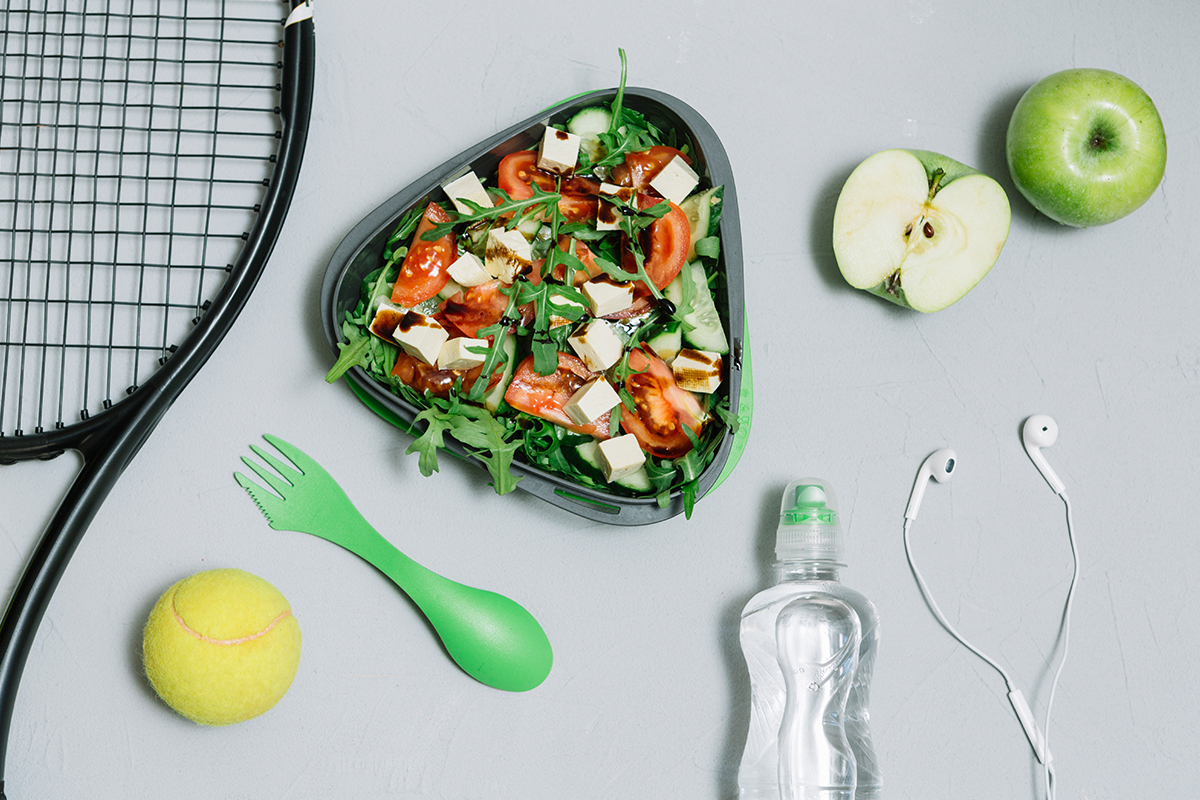The foundation for high athletic performance is regular training and proper nutrition. Without a well-designed diet, even the most intense workouts may not deliver the desired results. Let’s explore what an athlete’s diet should look like and which foods help achieve maximum results.
The Balance of Macronutrients: Proteins, Fats, and Carbohydrates
The foundation of any athlete’s diet should consist of three main components: proteins, carbohydrates, and fats. Each of these macronutrients plays a crucial role in the body.
Proteins in Sports Nutrition
Proteins are the building blocks for muscles. Without sufficient protein, muscles cannot recover and grow. Proteins are involved in tissue regeneration after intense workouts, and a lack of protein can lead to slower recovery and reduced physical endurance. Excellent protein sources for athletes include chicken breasts, fish (especially fatty varieties like salmon), eggs, and cottage cheese. For vegetarians, good sources of protein are legumes (lentils, beans) and soy products like tofu.
Carbohydrates for Athletes
Carbohydrates are the main source of energy for athletes. They provide the necessary fuel for physical activities. There are two types of carbohydrates: simple and complex. Simple carbohydrates (sugar, sweets) provide quick energy but can cause spikes in blood sugar levels, negatively affecting workout performance. Complex carbohydrates (grains, whole grain products, vegetables) offer a steady supply of energy and form the foundation of an athlete’s diet. Examples of good carbohydrate sources include oatmeal, buckwheat, potatoes, and brown rice.
Fats in Sports Nutrition
Fats also play an important role in an athlete’s diet. Saturated fats should be limited, but unsaturated fats (Omega-3 and Omega-6) must be included as they are involved in recovery processes and support heart function. Sources of healthy fats include avocados, nuts, chia seeds, and flaxseed oil.
Hydration and Its Role in Athletic Performance
Water is a key element of sports nutrition. During exercise, the body loses a significant amount of fluid through sweat, and if this loss is not replenished, it can lead to dehydration, reduced endurance, and slower recovery.
Water with Electrolytes
On average, athletes are recommended to drink 2 to 3 liters of water per day, but this amount may increase depending on the intensity of workouts and weather conditions. During intense activities, long competitions, or training sessions, it’s advisable to drink water with added electrolytes like potassium, magnesium, and sodium to replace the lost minerals.
Proper Hydration
A good example of proper hydration is using coconut water or homemade drinks made from water with a pinch of salt and some honey. These restore the body’s fluid balance and help maintain electrolyte levels.
Meal Timing and Athletic Training
For athletes, it’s not only important what they eat, but also when they eat. Proper meal timing throughout the day helps maintain high energy levels and improves recovery after workouts.
Meals Before Training
Before training, it’s best to consume light carbohydrates that provide the body with quick energy. One to two hours before exercise, you can eat something like a banana, a handful of nuts, or sweet potatoes. This will provide energy for the workout without overloading the stomach.
Meals After Training
After a workout, the main goal is muscle recovery and replenishing glycogen stores. An optimal combination is proteins and carbohydrates. You could have an omelet with vegetables or chicken breast with quinoa. It’s also important to drink enough water to restore fluid balance.
Meals Between Workouts
Between workouts, it’s important to maintain stable energy levels by eating regularly. Athletes are advised to have several small meals a day — 4 to 6 meals can help prevent sharp drops in blood sugar levels and ensure a constant supply of energy.
It’s important to remember that everyone is different, and the best diet is one tailored to individual needs, goals, and types of physical activity. Only then can maximum training efficiency be achieved, while maintaining good health.


